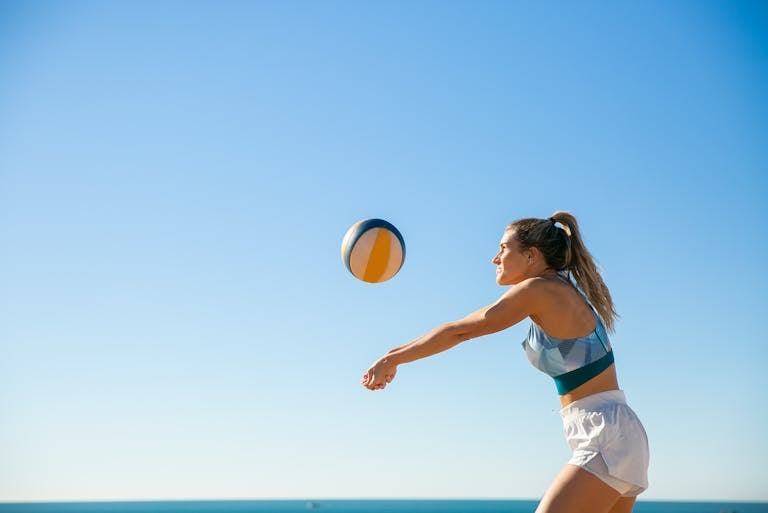NIL Compliance: Avoiding Common Mistakes That Can Impact Eligibility and Future Opportunities

NIL Compliance: Avoiding Common Mistakes That Can Impact Eligibility and Future Opportunities
As the NIL landscape continues to evolve, athletes have unprecedented opportunities to profit from their name, image, and likeness. However, with these opportunities come new risks. Athletes who don’t fully understand the compliance rules, fail to report NIL deals properly, or ignore specific terms in their contracts risk jeopardizing their eligibility, scholarships, or even future career prospects.
In this article, we’ll walk you through the most common NIL mistakes and provide actionable advice on how to avoid them, ensuring that your NIL journey remains successful and legally sound.
1. Not Reporting NIL Deals to the Compliance Office
One of the most frequent mistakes athletes make is failing to report NIL deals to their school’s compliance office.
- Why it matters: Most schools require NIL deals to be reported before athletes sign contracts or start working with brands. Failing to report can result in penalties, including losing eligibility or financial aid.
- What to do:
- Report every deal, no matter how small.
- Ensure your compliance office reviews and approves all NIL contracts.
- Keep records of all communication with sponsors, brands, and compliance offices.
Pro Tip:
Some schools have strict reporting windows. Always report deals ahead of time to avoid missing critical deadlines.
2. Ignoring NCAA or State-Specific Rules
NIL is regulated differently across schools, states, and athletic associations.
- Why it matters: Ignoring specific NCAA rules or state laws can lead to violations that threaten your eligibility or prevent you from benefiting fully from NIL opportunities.
- What to do:
- Understand NCAA NIL guidelines and how they apply to your specific sport and school.
- Research state laws—some states have stricter NIL rules than others, so what’s legal in one state might not be in another.
- Consult compliance officers at your school to clarify any gray areas.
Pro Tip:
Your school’s compliance office should be your first point of contact for any NIL-related questions. Make them your ally to avoid potential missteps.
3. Accepting Deals That Conflict with Your Scholarship or Other Sponsorships
Many athletes are eager to sign as many deals as possible, but not all deals are in your best interest.
- Why it matters: Some NIL contracts may conflict with existing agreements or school rules. For example, a deal with a competitor of your school’s sponsor could violate NCAA rules or lead to the loss of a scholarship.
- What to do:
- Check with your compliance office before signing any deals to ensure they don’t conflict with existing sponsorships or institutional agreements.
- Be mindful of exclusivity clauses—some NIL deals may prevent you from working with other brands in the same industry (e.g., soda, fast food, or energy drinks).
Pro Tip:
Before signing, clarify all exclusivity clauses and restrictions in your NIL deal, and consult your compliance office to make sure it won’t negatively impact your current and future opportunities.
4. Failing to Protect Your Intellectual Property (IP)
Your name, image, and likeness are intellectual property (IP), and it’s crucial to protect them.
- Why it matters: Some NIL deals may grant brands too much control over your image, likeness, or content, leaving you with limited ability to use it for future opportunities.
- What to do:
- Always ensure your NIL deals include clear terms about who owns the content you create and how it can be used.
- Never sign away your intellectual property rights indefinitely. Retain control over your image and likeness, especially when it comes to future use.
Pro Tip:
Work with a lawyer who specializes in intellectual property and NIL contracts. This will help you retain ownership of your likeness and ensure your brand remains yours.
5. Not Keeping Accurate Records of NIL Payments and Contracts
Many athletes overlook the importance of keeping detailed records of NIL contracts, payments, and communication.
- Why it matters: Keeping accurate records is essential for tax purposes, contract renewals, and compliance verification.
- What to do:
- Track every NIL payment you receive and store digital copies of contracts, emails, and correspondence with brands.
- Create a system for tracking dates, deliverables, and financial obligations for each NIL deal.
Pro Tip:
Use cloud storage (like Google Drive or Dropbox) to securely store contracts, invoices, and communications with brands and compliance offices.
6. Overlooking the Tax Implications of NIL Income
As you begin earning NIL income, it’s easy to focus on the money in your bank account and forget about taxes.
- Why it matters: NIL income is taxable, and not setting aside money for taxes can lead to unexpected liabilities come tax season.
- What to do:
- Set aside 25–30% of each NIL payment for taxes.
- Consult a tax professional who specializes in NIL income and athlete taxes to ensure you’re staying compliant with the IRS.
Pro Tip:
If you earn more than $600 in NIL income from a single sponsor, they are required to send you a 1099 form at the end of the year for tax reporting.
7. Signing Deals Without Proper Legal Review
Some athletes rush into deals without fully understanding the legal terms, which can be disastrous in the long run.
- Why it matters: A poorly written NIL contract can lead to disputes over payment terms, intellectual property rights, and other critical aspects of the deal.
- What to do:
- Always have a lawyer review your NIL contract before you sign it.
- Focus on key terms such as payment schedules, intellectual property rights, and the duration of the contract.
Pro Tip:
Invest in legal counsel—a lawyer with experience in NIL contracts can help protect your financial interests and ensure that you’re not signing away critical rights.
8. Failing to Plan for Life After NIL
NIL is an incredible opportunity, but it’s not forever. As an athlete, it’s crucial to use NIL as a stepping stone for future career growth, not just immediate financial gain.
- Why it matters: Overlooking future opportunities can leave you financially unprepared once your athletic career ends.
- What to do:
- Use your NIL earnings to invest in education, career development, and building long-term assets that will serve you after sports.
- Consider building a network of contacts, mentors, and industry relationships that can help you transition into a post-sports career.
Final Thoughts
NIL opportunities can be a game-changer for athletes, but to truly maximize the potential, it’s crucial to navigate the compliance rules carefully and avoid common mistakes. Stay transparent, consult with experts, and prioritize long-term goals over quick wins. By doing so, you’ll not only protect your eligibility and scholarships but also lay the foundation for lasting financial security and career success beyond college sports.





